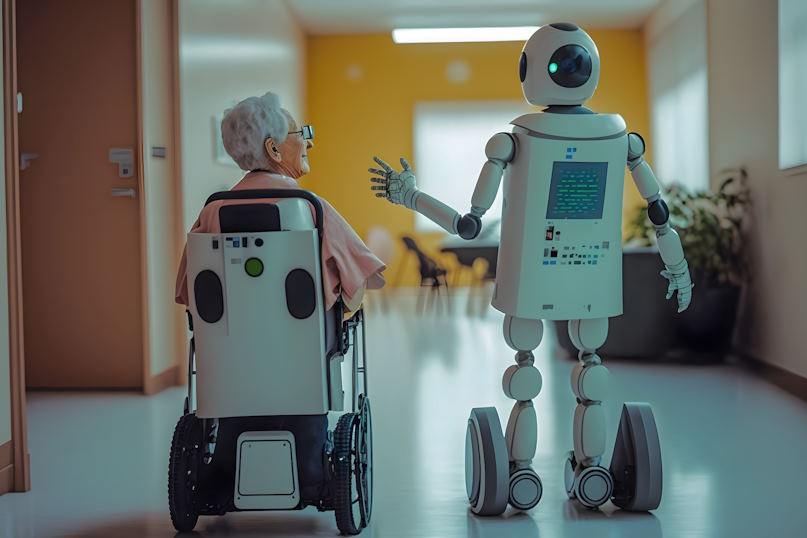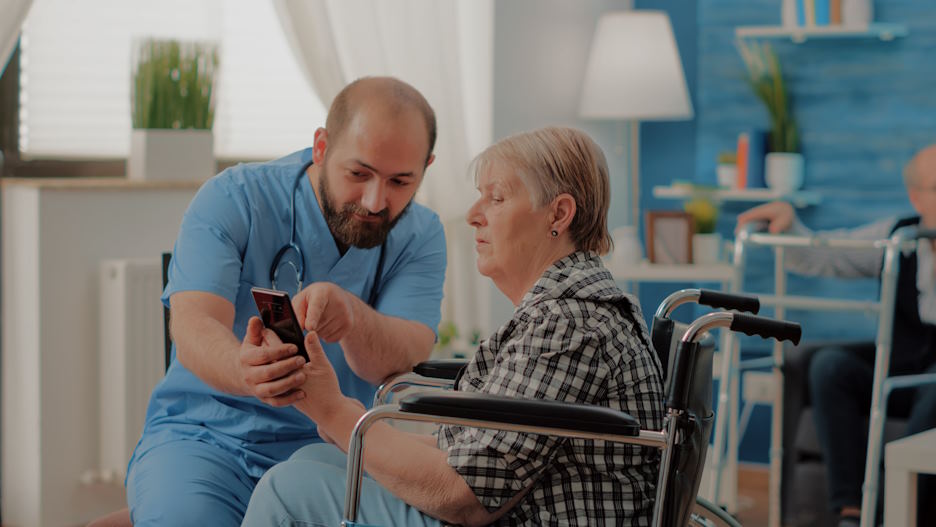A Guide to Choosing the Right Assisted Living Facility for Your Loved Ones
As our loved ones age, ensuring their safety, well-being, and
Read more...
As the world’s population continues to age, the need for effective and compassionate elderly care becomes increasingly critical. However, traditional healthcare approaches may struggle to keep up with the demands of a rapidly growing elderly population. Fortunately, technology emerges as a game-changer, ushering in a new era of innovation in elderly care. From remote monitoring and telehealth solutions to smart home technologies and assistive devices, the potential for technology to enhance the quality of life for seniors is vast.
Smart home technology has rapidly evolved, offering a wide array of devices that can be seamlessly integrated into the daily lives of elderly individuals, promoting independence and enhancing safety. These devices are equipped with sensors, artificial intelligence, and Internet of Things (IoT) capabilities, allowing them to communicate with each other and be remotely controlled through smartphones or voice-activated assistants. From smart lighting and thermostats to voice-activated personal assistants and fall detection systems, these devices are designed to create a more accessible and efficient living environment for the elderly.
The adoption of smart home technology can significantly improve the quality of life for elderly individuals. By automating various tasks, such as adjusting the thermostat, turning on/off lights, or even brewing a cup of coffee, smart homes reduce the need for physical exertion, making daily living more manageable for seniors with mobility issues. Moreover, voice-activated assistants like Amazon’s Alexa or Google Assistant provide hands-free access to information, entertainment, and communication, reducing the barriers posed by traditional devices for those with limited mobility or dexterity.

Assistive technologies have revolutionized the way we address mobility challenges faced by elderly individuals and those with physical disabilities. These cutting-edge devices and solutions are designed to enhance independence, accessibility, and overall quality of life for individuals with mobility limitations. From simple aids to sophisticated robotic systems, assistive technologies open doors to new possibilities, empowering individuals to navigate their daily lives with greater ease and confidence.
Assistive technologies encompass a wide range of devices tailored to assist individuals with various mobility limitations. Wheelchairs and mobility scooters provide enhanced mobility, allowing users to move freely both indoors and outdoors. Grab bars and stairlifts ensure safe movement around the home, while electric door openers and automatic faucets simplify daily activities. Furthermore, advancements in exoskeletons and prosthetics offer innovative solutions, restoring lost mobility and enabling individuals to engage in physical activities they may have thought were no longer possible.

Social connectedness is a fundamental aspect of human well-being, especially for the elderly population. As individuals age, they may face challenges such as reduced mobility, loss of loved ones, and a shrinking social circle. This can lead to feelings of isolation, loneliness, and even mental health issues. Maintaining social connections is crucial for overall mental and emotional health, as it provides a sense of belonging, support, and purpose. However, physical distance and other constraints can often hinder seniors from engaging in regular social activities. In this context, technology-based solutions emerge as powerful tools to bridge the gap and foster social connections for elderly individuals.
Advancements in technology have paved the way for innovative solutions to promote virtual engagement among seniors. Social media platforms, video conferencing tools, and messaging apps allow elderly individuals to stay connected with family, friends, and peers, regardless of geographical distances. Online community forums and interest-based groups provide opportunities for like-minded seniors to bond over shared hobbies and experiences. Moreover, virtual engagement platforms cater specifically to elderly individuals, organizing events, classes, and support groups to encourage social interaction and combat feelings of loneliness.
Sign up for our newsletter to receive the latest updates, heartwarming stories, and valuable resources on elderly care and community assistance. Join our compassionate community of caregivers, volunteers, and advocates, and be a part of the positive change we're making together.